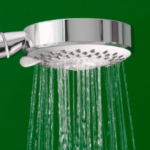Medically reviewed by
What is balanitis?
Balanitis is the medical term used for inflammation of the glans penis (the head of the penis). Balanoposthitis refers to inflammation of both the head and foreskin of the penis.
Balanitis is not the same as lichen sclerosis, which is also known as BXO (balanitis xerotica obliterans).
Balanitis affects between 1 in 3 to just over 1 in 10 men at some point in their lives. Balanoposthitis only affects uncircumcised men and occurs in about 1 in 17 of them.
Balanitis most commonly occurs in (1 in 25) boys under 4 years of age and (1 in 30) uncircumcised men.
Symptoms of balanitis
Causes of balanitis
Fungal infection is the overall most common cause of balanitis, but the irritation of the head of the penis is the most common cause of mild cases of the disease.
The fungus found most often in cases of balanitis (Candida albicans) is common but doesn’t always cause problems. Poor hygiene in uncircumcised males can lead to infections associated with balanitis.
Balanitis is more common in males who are not circumcised than in those who are, suggesting that circumcision protects against the disease.
Diagnosis of balanitis
Balanitis and balanoposthitis are usually diagnosed by examining the penis. In some cases, a biopsy might be needed to identify an underlying cause. Causes of balanitis that need to be excluded during diagnosis, or treated, include skin diseases like eczema, psoriasis and dermatitis.
Subscribe to our newsletter

Balanitis treatment
Applying an antifungal cream for a couple of weeks is the usual treatment for balanitis. Your doctor might suggest using a mild steroid cream as well. If your balanitis appears linked to a bacterial infection, your doctor may prescribe an antibiotic.
How can you tell if balanitis is fungal or bacterial?
Learn more here.
In some men, balanitis or balanoposthitis can come back or continue even after treatment. If you have persistent or recurrent balanitis, your doctor may suggest considering circumcision.
Prevention of balanitis
Good hygiene is the easiest way to minimise your chance of balanitis. You should wash your penis every day with warm water. If you do want to use soap, choose a low-irritant option designed for sensitive skin. Washing with soap too often might make balanitis worse.
Avoid colognes, deodorants, body washes, lotions or moisturisers that contain alcohol and perfumes.
If you have a foreskin, keeping it clean will help prevent inflammation or infection. When washing, gently pull back your foreskin and rinse the head of your penis and underneath the foreskin.
Health effects of balanitis
It’s important to identify the underlying cause of your balanitis. In many cases, simple improvements in hygiene might be enough to prevent it from coming back after successful treatment.
If you have a compromised immune system as a result of age, HIV, or other causes, serious infection can result from the microorganisms that cause balanitis.
Balanitis is associated with a higher-than-normal risk of penis cancer, but the risk is still very low.
What to do about balanitis
If your penis is sore, red, or swollen, see your doctor as soon as you can to rule out potentially serious causes, receive effective treatment, and avoid complications.
The microorganisms that cause balanitis can be passed between you and your sexual partner(s), so you should encourage them to see their doctor too.












